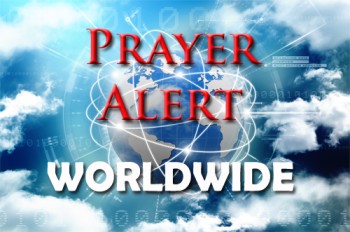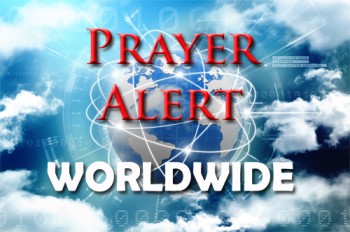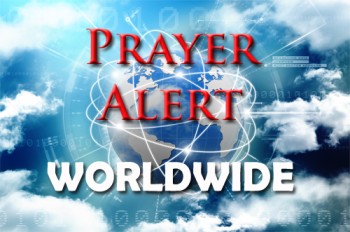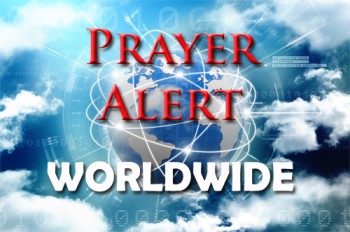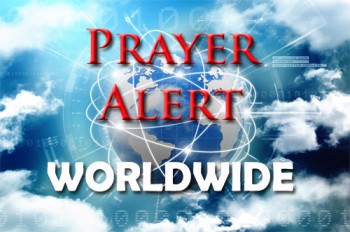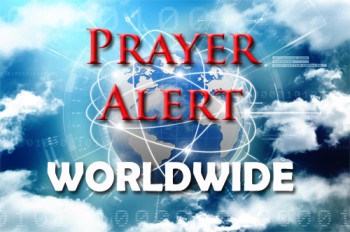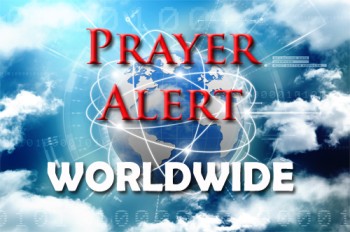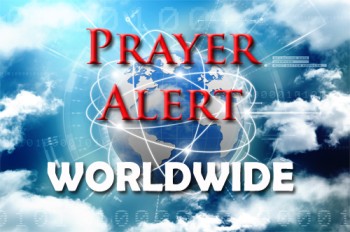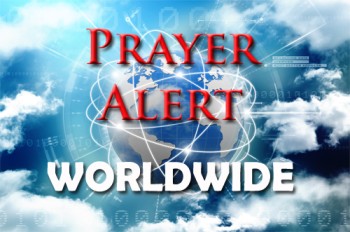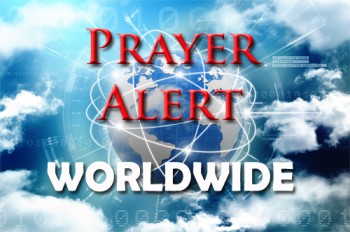Displaying items by tag: Africa
Burkina Faso: government arrests eight humanitarian workers
The military government of Burkina Faso has arrested eight employees of the Netherlands-based International NGO Safety Organisation (INSO), accusing them of ‘spying and treason’. The security minister claims that the group, which includes citizens from France, the Czech Republic, Mali, Senegal, and Burkina Faso, continued operating after a three-month ban for allegedly collecting sensitive security data without authorisation; allegedly they passed information harmful to national security to foreign powers. INSO, which specialises in providing safety support for humanitarian operations, categorically rejected the accusations, insisting that all data it gathers is public and used solely to protect aid workers. The arrests come amid Burkina Faso’s growing estrangement from Western nations and its realignment with Russia, along with Mali and Niger. The ruling junta continues to battle armed groups linked to al-Qaeda, while facing criticism from human rights organisations over alleged abuses by its forces and allied militias.
Madagascar: protests continue despite government dissolution
Madagascar is facing mounting unrest as protests continue despite president Andry Rajoelina’s decision to dissolve the government. The move, announced on state television, was intended to ease tensions following demonstrations over widespread water and power shortages. Rajoelina expressed sympathy to families of those killed and acknowledged administrative failings, yet protesters remain unsatisfied, demanding his resignation. Many argue that changing ministers is not enough, since the president himself holds ultimate responsibility. The demonstrations, largely led by Gen Z, represent one of the most serious challenges to Rajoelina’s leadership since his 2023 re-election. Authorities have responded with curfews in Antananarivo and other major cities, and police have repeatedly used teargas and fired rubber bullets at demonstrators. The UN has said that at least 22 have been killed and over 100 injured, though the government disputes these figures.
Kenya: turning a deadly weed into an eco-friendly innovation
Innovator Joseph Nguthiru has turned a personal challenge into an award-winning environmental enterprise. In 2021, he and classmates were stranded for hours on Lake Naivasha when water hyacinth, a weed that disrupts fishing, navigation, and irrigation worldwide, blocked their boat. That incident inspired their engineering project to convert the invasive plant into biodegradable products. Nguthiru envisioned ‘one problem solving another’, so launched HyaPak Ecotech Ltd to create eco-friendly alternatives to single-use plastics, including packaging bags and seedling wrappers. HyaPak has already removed over 700 kilograms of hyacinth and partnered with Kenya’s government in a programme to plant 15 billion trees over ten years. Nguthiru has also invented a solar dryer, reviving Kenya’s pyrethrum farming, and leads Adopt a River, which has cleared more than three tons of river waste while educating communities on climate action. He believes lasting change requires grassroots involvement, proving innovation and community engagement can drive sustainable solutions.
Nigeria: new chapter in global fuel trade with first export to USA
The massive 650,000-barrel-per-day Dangote refinery has delivered its first US gasoline export, signalling a new chapter in global fuel trade. The tanker Gemini Pearl discharged about 320,000 barrels of gasoline at Sunoco’s Linden facility in New York harbour, with Vitol purchasing the cargo from Switzerland-based Mocoh Oil and selling most of it to Sunoco. The shipment meets stringent US motor fuel standards, a key milestone for the refinery after many startup delays. Two more USA-bound cargoes are en route. While these exports demonstrate Dangote’s potential to reshape energy flows and reduce Nigeria’s reliance on fuel imports, further US deliveries may pause soon because the refinery’s gasoline unit is expected to undergo two to three months of repairs, according to an industry monitor. Meanwhile, the refinery has also begun direct fuel supplies to marketers in Nigeria, which potentially could put an end to the country's shortages. See
Angola: nobody wants to talk about July protests
In July, protests over fuel price hikes erupted across Angola, paralysing parts of the capital Luanda and spreading to other provinces. Sparked by a taxi drivers’ strike, these demonstrations quickly turned violent, leaving at least thirty dead and thousands arrested. Many residents now fear speaking openly, wary of reprisals. The unrest exposed deep social and economic inequalities in the oil-rich nation, where youth unemployment stands at 54% and over a third of the population survives on less than £1.50 a day. Young people, frustrated by poverty, corruption, and lack of opportunity, led the protests, which sociologists describe as a response to decades of misgovernance since the civil war ended in 2002. President João Lourenço condemned the violence as foreign manipulation but faces criticism for failing to diversify the economy or curb high inflation. As Angola prepares to celebrate fifty years of independence, many fear further unrest before the 2027 elections if systemic issues remain unaddressed.
South Africa: opposition leader found guilty of hate speech
Opposition leader Julius Malema has been found guilty of hate speech by the country’s equality court after inflammatory remarks he made at a 2022 rally. The Economic Freedom Fighters (EFF) chief, known for provocative statements, said that ‘a revolution demands that at some point there must be killing’, following an incident where a white man allegedly assaulted a party member. The court ruled that while condemning racism is acceptable, these words amounted to incitement to violence. Malema and his party rejected the judgment, saying the words had been taken out of context. The conviction adds to Malema’s history of controversy, including a ban from entering the UK and criticism from Donald Trump for incendiary remarks and songs. His case underscores the continuing struggle with racial tensions in South Africa more than three decades after apartheid ended.
Nigeria: women vaccinators lead the battle against polio
In a camp just outside Lagos, female vaccinators like Eucharia and Aishatu are leading the charge against polio. Though Nigeria was declared free of wild poliovirus in 2020, the country continues to battle outbreaks of vaccine-derived polio (cVDPV), especially in under-immunised and conflict-affected regions. Women have proved indispensable in this effort, often gaining household access where male health workers cannot due to cultural or security concerns. Despite facing mistrust, misinformation, and physical danger, these women build trust through persistence, community dialogue, and personal sacrifice. Many supplement their modest income through small businesses, unintentionally turning polio campaigns into a platform for female empowerment and entrepreneurship. Their efforts have not only improved vaccination rates but also strengthened public health infrastructure and spurred broader social change. While wild polio is now endemic only in Pakistan and Afghanistan, Nigeria’s experience offers vital lessons. Its fight against polio, led by women, supported by community trust, and bolstered by innovative strategies, has reshaped how public health can be delivered in fragile settings.
Sudan: at least forty dead in a week in worst cholera outbreak in years
Doctors Without Borders (MSF) says that Sudan’s Darfur region is facing its worst cholera outbreak in years, with at least forty deaths reported in the past week and more than 2,470 deaths nationwide since August 2024. The crisis has been caused by the two-year war between Sudan’s army and the paramilitary RSP, which has displaced millions and severely restricted access to clean water. In Tawila, 380,000 displaced people survive on an average of only three litres of water a day - less than half the emergency minimum. Contaminated sources, damaged sanitation systems, and mass displacement have accelerated the disease’s spread, which now reaches beyond Sudan into Chad and South Sudan. MSF’s head of mission has warned that heavy rains are worsening conditions: he said, ‘Survivors of war must not be left to die from a preventable disease.’ Without urgent humanitarian intervention, the outbreak threatens to spiral further, endangering countless lives in an already devastated region.
Zimbabwe: ban on street vendors and second-hand clothes
The government has ordered the immediate removal of street vendors from Harare’s central business district and reaffirmed a national ban on the import and sale of second-hand clothes. Local government minister Daniel Garwe cited concerns over urban disorder, the rise in illicit nighttime activities, and the negative impact on formal businesses. However, opposition politicians believe street vending stems from desperation, not defiance: they argue that many citizens rely on informal trade for survival amid chronic unemployment and economic mismanagement. One has said that such policies, without viable alternatives, only deepen suffering. Instead of punitive measures, she has called for inclusive economic reform, skills development, and gradual integration of informal traders into formal markets. Previous crackdowns failed because they didn’t address the underlying causes of poverty.
Africa: over 22,000 killed by Islamist militants in a year
A new report has revealed that over 22,000 people, most of them Christians, have been killed by Islamist militants across Africa in the year to June 2025. This marks a 60% increase in violence since 2023. The Jama’at Nusrat ul-Islam wa al-Muslimin (JNIM) network, now controlling more than half of Burkina Faso, was responsible for over 80% of fatalities in the Sahel region. In Somalia, al-Shabaab killed more than 6,000 people, while the Islamic State in Somalia (ISS) is emerging as a global IS hub. The Allied Democratic Forces, linked to IS, claimed a deadly church attack in eastern Congo, killing 43 during a night service. Media restrictions and loss of state control across 950,000 square kilometres are masking the true scale of violence. The report warns of growing danger to Christian communities throughout Africa.
